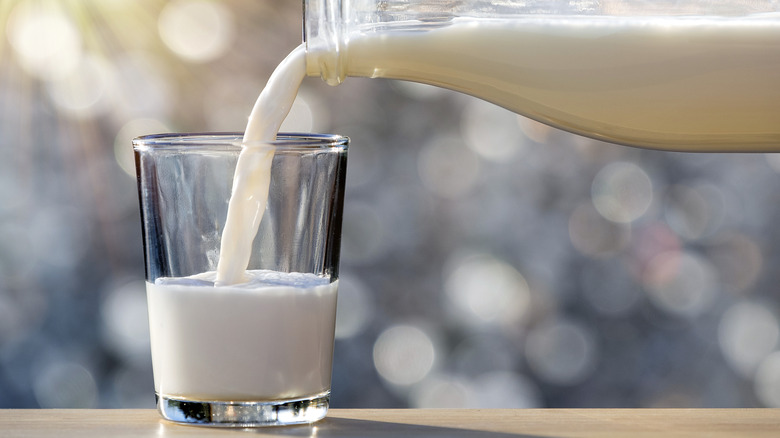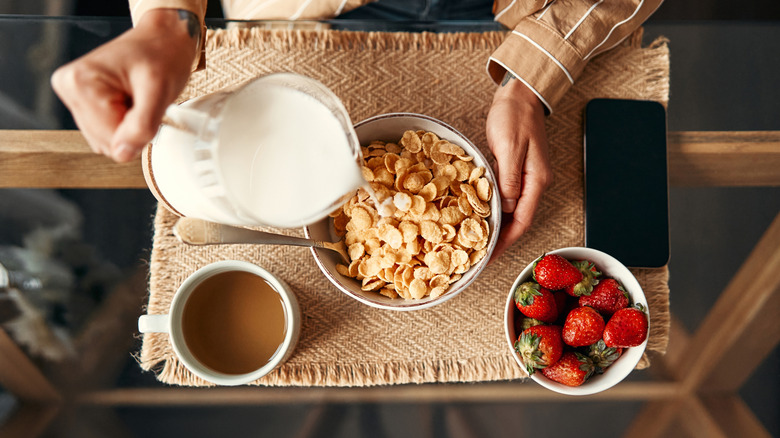The One Plant-Based Milk With Just As Much Calcium As Dairy Milk
Today's dairy lovers are lucky to be able to pick from so many different types of plant-based milk. In some cases, your choice might be influenced by taste, allergies, or how suitable each type is for cooking. If you're looking for adequate levels of calcium, though, consider fortified soy milk.
Dairy milk from cows contains an average of 300 milligrams of calcium per cup. While not all of it is absorbed into our bodies, milk and other products provide around 75% of our dietary calcium in the U.S., which is needed for healthy bones, teeth, blood, and many other vital functions. While calcium occurs naturally in animal milk, its levels are much lower in dairy alternatives made from plants — which could be a concern as more of us are opting for plant-based substitutes.
This is where grocery-style soy milk (which is different from homemade) can shine. Many companies now fortify their products with extra calcium, raising levels from 30 milligrams per cup in untreated soy milk to 300 milligrams in fortified versions. Combined with its high protein and other interesting facts about soy milk, this makes it a solid choice among dairy alternatives.
Drinking your nutrients
How can you be sure you're getting fortified products? The good news is that the calcium content is right on the carton, as U.S. manufacturers are required to include it in the nutrition panel. Along with extra calcium, the manufacturer probably added other essential nutrients like riboflavin and vitamins A (which helps us absorb the calcium), B12, and D.
But there's one more tip to make sure you get enough of these important nutrients. Most manufacturers use powdered minerals like tri-calcium phosphate or calcium carbonate to boost the calcium level of their products. However, these ingredients tend to sink toward the bottom of the carton during storage. To mix them up again, give the carton a good shake before pouring it. Then feel free to use the soy milk anywhere you'd use the traditional kind — from your breakfast cereal to smoothies to baking.

